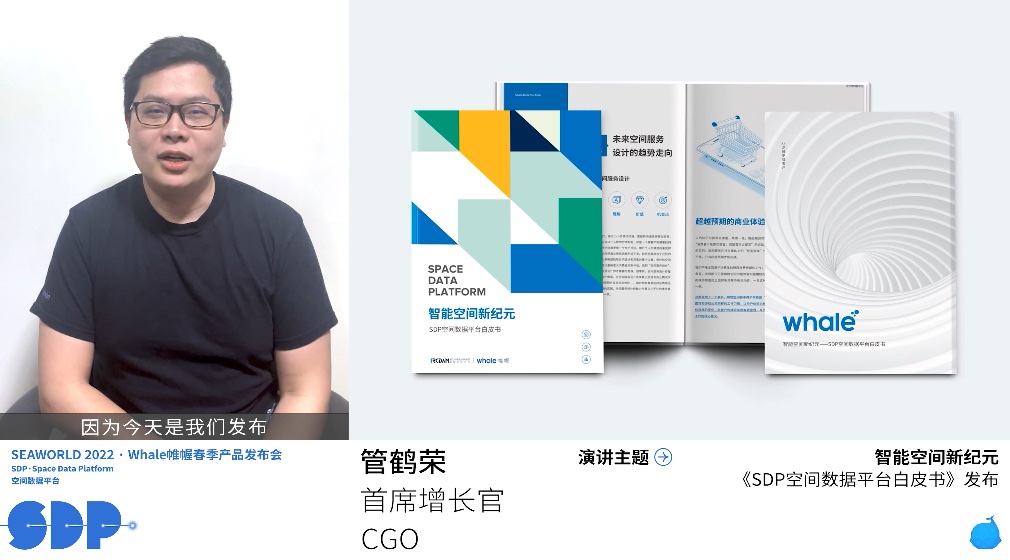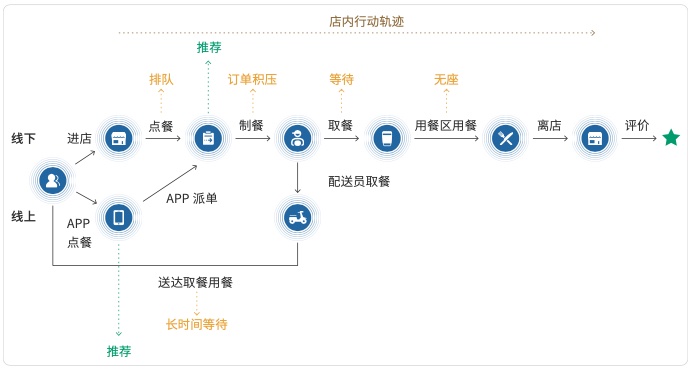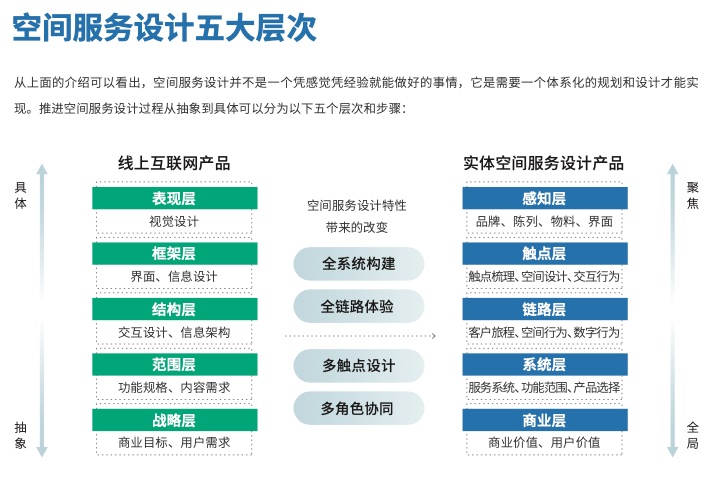Interview with Whale CGO Guan Herong: SDP shows the value of field data

Martech is one of the hottest concepts in recent years, and there are now more than a thousand Martech companies in China, large and small. In the marketing field, which emphasizes online data, CDP, DSP and other trendy concepts, Whale, which was established 5 years ago, put forward the concept of SDP for the first time, forming a closed loop of online and offline data to break the "last mile" in the Martech industry.
Whale's function positioning of "SDP - Space Data Platform" is to focus on the digital needs of brand space, based on the management of the user journey of the whole domain of contacts, deeply focus on the store's spatial intelligence upgrade and "field" data insight, dedicated to providing brand stores with "people - content - field" integrated spatial data solutions, providing a basis for the whole life cycle of store management and operational decisions, and maximizing the release of spatial data value.

What kind of impact can this seemingly abstract SDP have on stores and users? We had a chance to interview with CGO Guan Herong, Chief Growth Officer of Whale, to discuss the application and future of Whale SDP.

01
Daily consumption behavior is a treasure
A well-known tea drink domestic sitting in thousands of stores, the store daily flow of people coming and going, someone in the store order queue, someone small program shopping to the store to pick up, someone sitting in the store slowly enjoy, someone to take the drink rush. Each consumer has their own unique consumption habits, their own unique understanding of store services, and naturally different expectations of the beverage store.
Is the queue too long? Is the online takeaway delayed too long? What is the ratio between the number of single seats and multi-seats in the store? Can there be some way to stop customers who are in a hurry to pass by, so as to promote their consumption? For beverage stores, to serve customers better, maximize in-store resources and explore more consumption opportunities, they must sense the inner thoughts of consumers and respond to the different consumption habits of each person.

Of course, it is not limited to drinks, but for retail stores such as shoes and clothing or trendy games, or the whole space scene of large shopping centers, customers' head turns when passing through the store, their stay in front of the shelves after entering the store, their trajectory when browsing, and their queuing at the checkout counter are all valuable data assets.
Due to the rapid development of social media, small programs, e-commerce and other online channels, the "data" mentioned in the current intelligent marketing industry is mostly online customer data, and few companies can fully collect these thousands of individual consumer data and make full use of it.
Whale was the first in the industry to introduce the concept of SDP once it had the ability to capture all the data from both online and offline."
02
Hierarchical services to meet the diverse needs of customers
SDP is essentially presented to customers as a special data source. Without "senselessly" capturing face data, Whale's tent processes the unstructured data acquired by the edge hardware through unique AI algorithms and other technologies, converting it into structured data and then storing it for analysis. For example, Whale tent will match a customer's position before and after 10 seconds of spacing through ReID technology to confirm the travel route and get data such as speed and gait.
In simple scenarios such as retail stores, Whale's algorithm can achieve an accuracy rate of over 90%; in complex scenarios such as train stations with large crowds, the accuracy rate can also reach 80%, which is basically 8-10 percentage points ahead of the industry.
Guan Herong once compared SDP and Whale's services to customers with cooking, "The raw data of SDP is like an egg, there are many ways to cook it, the egg itself is the first layer of value as an ingredient." The first layer of service Whale provides to its clients through SDP is to provide such accurate data, which carries its own value, directly to the client, who can make marketing decisions directly based on the data.

Some clients are not satisfied with using data as a minimum closed loop, they usually have their own operation analysis department and have industry know-how, but they lack analysis tools. After sorting out the main data dimensions of the industry, Whale packages a series of tools in an analytics system, which includes a variety of analytical models (such as attribution models, consumer value regression models) that can be applied to the client's industry, industry benchmarking data, and other functions. This system then empowers the client's analytics department to quickly produce the industry insights that the client needs.
The third level of service Whale provides to its clients is light consulting. Customers will present a topic and want Whale to use the "eggs and tools" at their disposal to help them actually achieve a goal.
Improving the consumer experience is one of the most mainstream needs in many projects Whale has worked on. By mastering the data of consumers from entering to leaving the store, from browsing to trying on the whole process, Whale helped the company optimize the placement of products in the store through creative store design, guiding consumers to lengthen the store journey as much as possible and improving store sales and customer experience. The entire implementation process was handled by Whale's experienced implementation team.

03
Combining technology and applications
In terms of future development, Guan Herong believes Whale will focus its attention on improving both technical strength and industry accumulation.
"Our goal in technology is always to pursue better data completion and accuracy." Technical strength is a point of pride for Whale. The founder, who comes from a prestigious technology background, leads a technical team from well-known technology companies at home and abroad, and determines the "depth" of the curtain product by virtue of its basic technical ability. It is the improvement of technology that allows SDP to be upgraded from single store to shopping center, and will reach more and more complex field data in the future.
Whale's goal is to be more than a leading technology provider; it is also working to broaden the "breadth" of its solutions and consulting services. In response to the question of whether Whale SDP will be applied to non-consumer scenarios such as industrial manufacturing or government services, Guan Herong replied, "Definitely, Whale is constantly building up its industry know-how while ensuring that its basic technology strength is leading. Whale SDP is capable of becoming a technology provider in industrial manufacturing and government, but Whale aims to be more than that."

Guan Herong finally mentioned Whale SDP's dream, "I hope Whale can become one of the most powerful technology companies in the field of field data, and I hope that in the future SDP can help all brands' newly opened stores to improve consumer experience and provide value to them." I believe Whale can make a straight path in the highly competitive track of Martech with the sword of SDP.
Add Customer Service
Get your copy of the SDP White Paper now


















